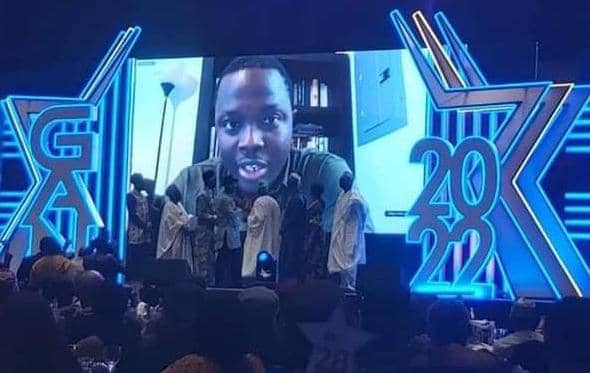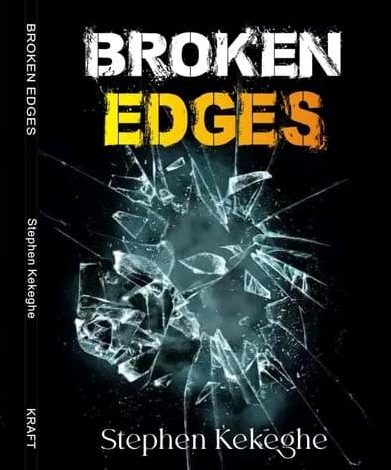Ezeigbo explains jury composition as NLNG flags off Nigeria literature, science prizes 2023

By Anote Ajeluorou
FROM a modest N1m since inception, The Nigeria Prize for Literary Criticism has jumped to a bumper USD$10,000 in prize money for the winner! This is in keeping with the increment announced and implemented at last October prize award. Expectedly, more critics will now be interested in entering their critical works for the prize to raise the competition level from the paltry entries critics usually sent in. Dr. Kabiru Adebayo was the first scholar to benefit from the prize increase last year when he won it with his critical essay. Romeo Oriogun won the main prize with his poetry collection, Nomad.
It also formed part of the announcement the Advisory Boards for The Nigeria Prize for Science, The Nigeria Prize for Literature and The Nigeria Prize for Literary Criticism, sponsored by Nigeria LNG (NLNG) Limited, made while calling for entries for the 2023 edition of the prizes to flag off this year’s competitions. The Science and Literature prizes, which are now in their 19th year, each come with a cash prize of USD$100,000 while the Prize for Literary Criticism has prize money of USD$10,000. The board is chaired by Prof. Akachi Ezeigbo, who is assisted by two playwrights and academics – Professors Olu Obafemi and Ahmed Yerima.
The Science Prize, which recognises outstanding scientific achievements by Nigerians and non-Nigerians, will focus on Innovation for Enhancement of Healthcare Therapy this year. The Literature Prize, on the other hand, will focus on Drama. The prize, which honours the author of the best book by a Nigerian, rotates among four literary genres, namely Prose, Poetry, Drama and Children’s Literature. The Literary Criticism Prize, which also aims to promote Nigerian Literature, will receive entries on works in literary criticism of Nigerian Literature, especially critical essays on new writings in Nigerian Literature.
The call for entries for the literature prize and literary criticism will close on 31 March 2023 while the window for the science prize will close on 30 April 2023.

Professor Ameh Dennis Akoh will chair the panel of judges for this year’s Literature and the Literary Criticism competition. Other panel members include Professor Osita Catherine Ezenwanebe and Dr. Rasheedah Liman. Ezenwanebe is a professor of Creative Arts, the University of Lagos. She has written and produced several full-length plays. Liman is a Senior lecturer at the Department of Theatre and Performing Arts, Ahmadu Bello University (ABU) Zaria, Kaduna State. Akoh is a Professor of Drama and Critical Theory at the Alex Ekwueme Federal University, Ebonyi State. He has over 50 publications in referred local and international journals and books. He is the former Editor of Nigerian Journal of Indigenous Knowledge and Development, Nigerian Theatre Journal (NTJ), and Co-editor of African Nebula and UNIOSUN College of Humanities Monograph Series (2009-2016).
The Advisory Board also announced Professor Victor K. Yankah from the Department of Theatre and Film Studies, the University of Cape Coast, Ghana, as the International Consultant.
The winners of The Nigeria Prize for Literature and The Nigeria Prize for Literary Criticism, if any, will be announced at an award ceremony in October 2023 to commemorate the anniversary of the first LNG export from the NLNG’s Plant on October 9, 1999. The Science Prize winner will be revealed earlier in the year. The Nigeria Prize for Literature and The Nigeria Prize for Science are part of Nigeria LNG’s contribution towards helping to build a better Nigeria.
However, the jury for this year’s drama prize has been reverted to an all-academic one, a situation some critics frowned at when they insist that drama is ‘not a closet art’ like poetry and prose. All three prize judges are university teachers, including the International Consultant. Last year for poetry, there were two non-academics and one academic member for the jury. Also, men seem to hold sway in the jury composition in two male and one female. Are there particular reasons for the gender disparity and why non-academics are not considered this year? Two critics put it thus:
“I belong to the school of thought that (drama) texts should not merely be subjected to arm-chair readings,” Jude Otteh said. “Due to my directing background, I believe the model should be performance-based and the text itself. We have seen texts that cannot withstand the rigors of the stage! We have seen texts that are so over-populated with characters that you begin to wonder who says what. I still believe that each text that is put in the “ring” should have been subjected to the stage. A 50-50 affair (of awarding scores) certainly works out. It makes for plays that would be well rounded, not plays that are suitable for reading and not performance.”
Also, Denja Abdullahi is concerned that the advisory board has reversed the mixed jury the prize had last year to only an academic one, saying, “I had thought NLNG would learn from the successful experimentation in its combination of judges last year. Drama is a genre that cannot be confined to academia. The greatest playwrights and dramatists we have produced in this country are not necessarily academics. I had expected renowned playwrights, dramatists and thespians like Ben Tomoloju, Jahman Anikulapo, Segun Adefila or even play producers like the Terra Culture woman Mrs. Bolanle Austen-Peters on the panel. There are also renowned dramatists working in the public sector who could be used as judges. Drama is not a closet art, it is for public viewing so the practitioners are important in adjudging what a good drama text with performance potential is. NLNG in its yearly selection of judges should be mindful of in-breeding which leads to a situation where a group of academics acting as judges award the prizes to their colleagues in academia. There must be diversity to safeguard the integrity of the judging process. Literature is not only meant for the academia; it extends to the society and is consumed most and finds greater relevance outside the academy.”

But Ezeigbo was quick to dispel all such fears in her response to those criticisms, “Last year 2022 and the previous year 2021, we had TWO MEN AND TWO WOMEN on the adjudication team (local and international). This is because the two International Judges in both years were women. This year the International Judge/Consultant is a man. However, what guided us most was not just maintaining a balance but the fact that we chose people who are very qualified and are achievers in the fields of drama, theatre and performance.
“In choosing the Panel of Judges this year for drama, we took into consideration people who are rounded in the area: they are not just academics, they are also a combination of critics, theorists and well versed in performance and some are playwrights. We felt they will do justice to the assignment, especially as we were also thinking of the other aspect, The Nigeria Prize for Literary Criticism. These ones/individuals will do justice to that aspect of the adjudication. We were also conscious of the geographical spread of the experts. We scouted for non-academics too, and considered a few names, but eventually came to the conclusion that the choice we made is an excellent one for the genre under consideration and in focus.”
She also maintained that excellence was the overriding objective of the prize process, which informs who is chosen or not, adding, “While serving we intend to give our assignment our best in all ramifications. Nigeria LNG expects nothing less. Excellence is the watchword. Responsibility and accountability are part of it.”



